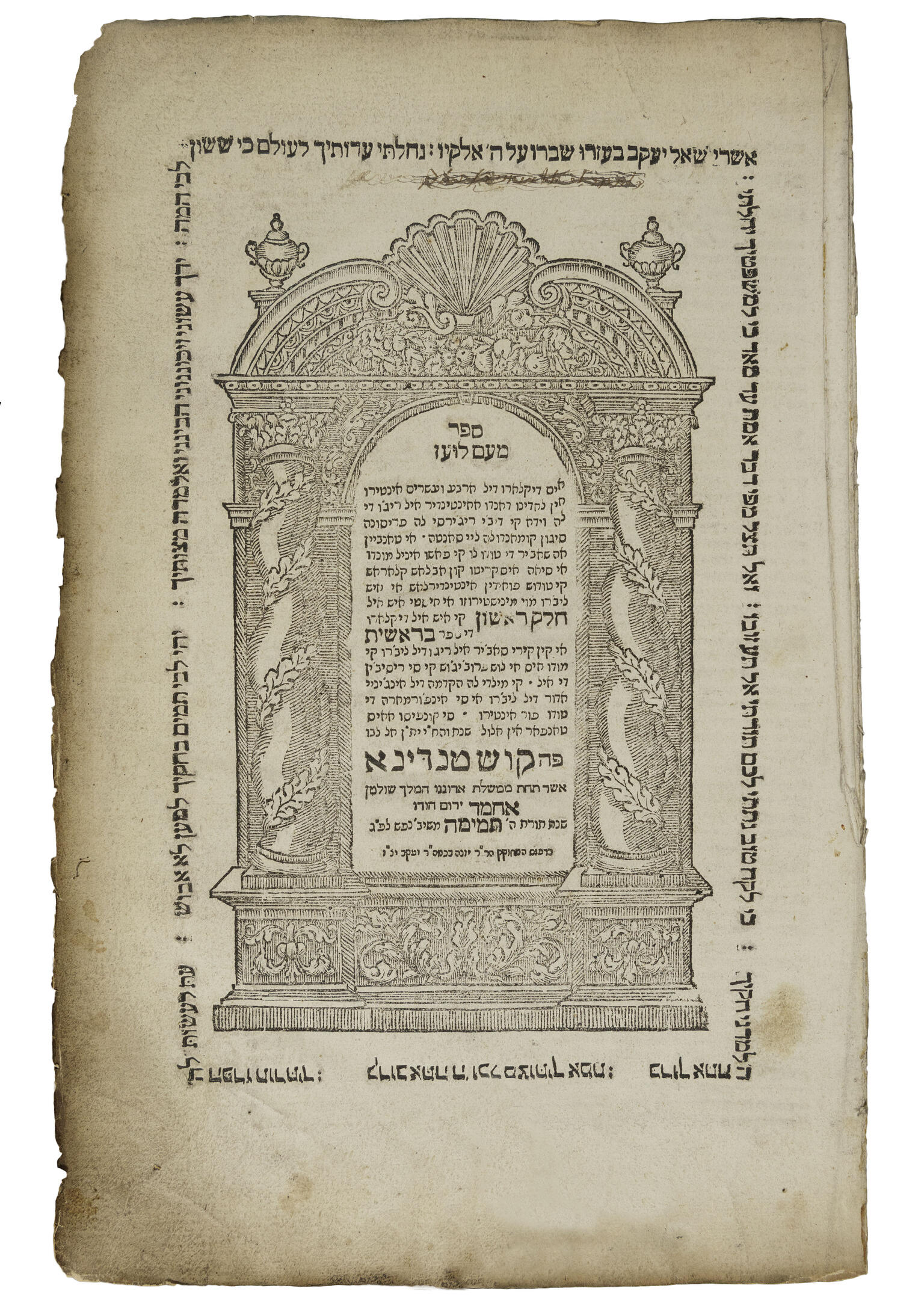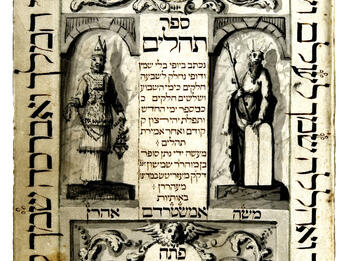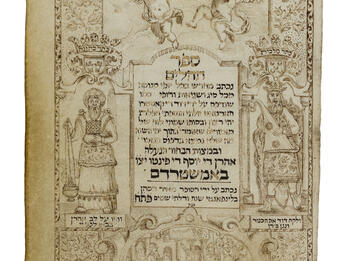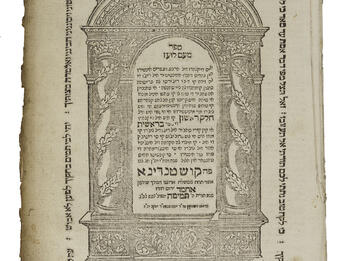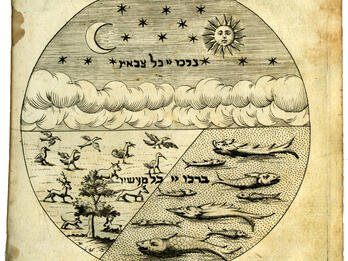Jacob Huli’s Me‘am lo‘ez (From a People of Foreign Tongue)
The masterpiece of eighteenth-century Ladino literature is the encyclopedic commentary on the Bible, Me‘am lo‘ez (From a People of Foreign Tongue), by Jacob Huli, the first volume of which was published in Istanbul in 1730. Huli noted in his introduction that he embarked on this project to counter the decline in religiosity and knowledge of the Jewish sources, as well as the Spanish public’s growing distance from Ladino and Hebrew. After Huli’s death in 1732, the project was continued by Isaac Magriso, who completed the commentary on Exodus, published in Istanbul in 1746. Commentaries on Leviticus (1753) and Numbers (1764) followed. This project, which continued until the end of the nineteenth century, became a cornerstone of Ladino culture and of Sephardic Judaism in the East, appealing to men and women.
Credits
Isaac ben Moses Magriso and Jacob Culi, from Sefer Me–ʻam loʻez (Istanbul: Bi–defus Yonah b. Yaʻaḳov, 1730), title page.
Published in: The Posen Library of Jewish Culture and Civilization, vol. 5.


